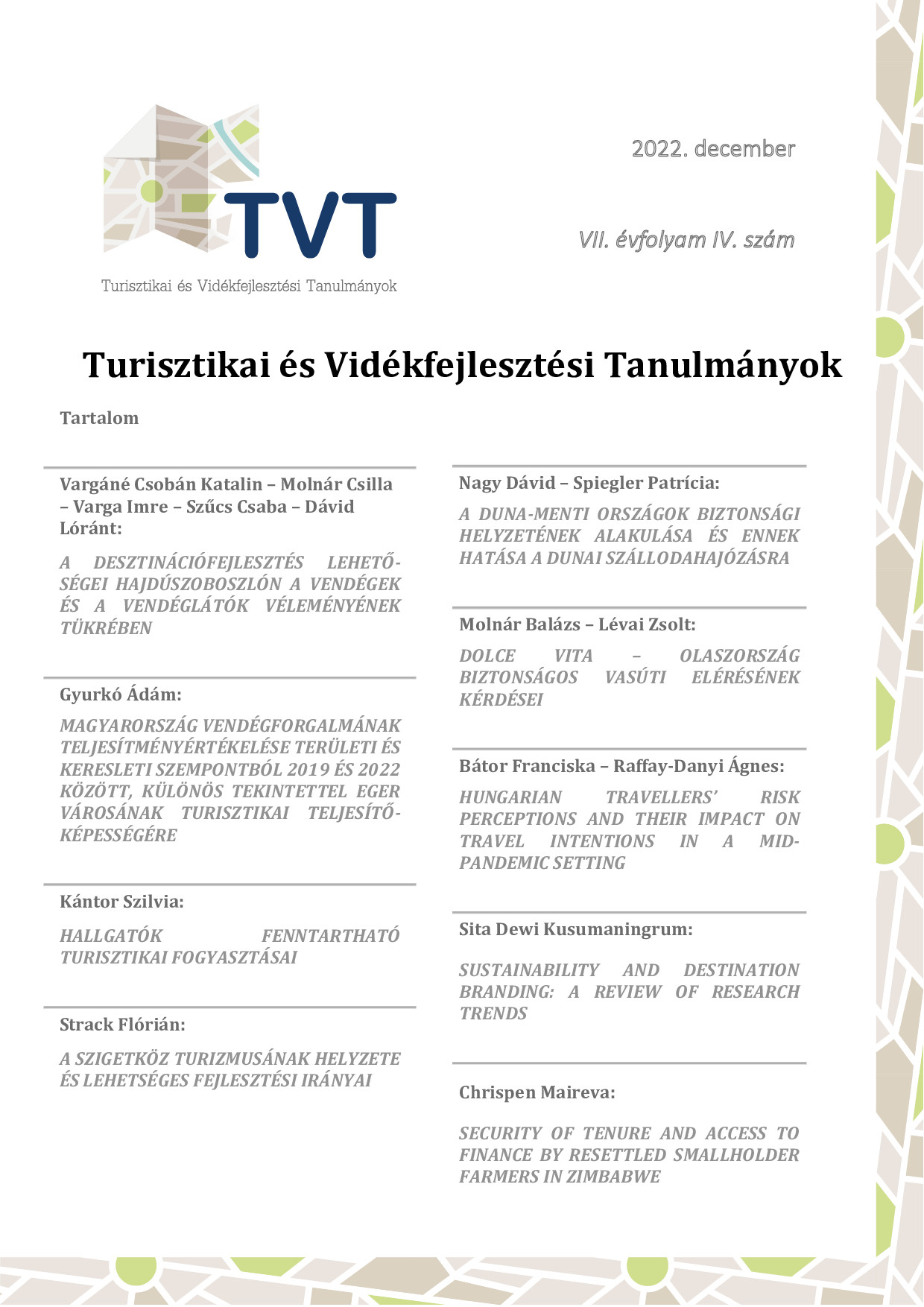Hungarian travellers’ risk perceptions and their impact on travel intentions in a mid-pandemic setting
DOI:
https://doi.org/10.15170/TVT.2022.07.04.07Kulcsszavak:
perceived risk, risk factors in tourism, travel intention, socio-demographic factors, HungaryAbsztrakt
From a general perspective, risk is inherently part of all tourism experience, however, some tourists are less concerned about certain risk factors, while others tend to be more risk-averse which has a negative impact on their intention to travel. This study examines how Hungarian travellers with different socio-demographic characteristics differ in terms of the perception of risk associated with international tourism. The risk factors included in this study are: terrorism, political instability, health risk, natural disasters, and crime. A random sample of 210 Hungarian travellers was tested. A series of paired samples t-test analyses and multiple analysis of variance revealed significant differences in the perceived influence of travel risks on international tourism among respondents with different socio-demographic profiles. Examining how Hungarian travellers differ in terms of travel risk perception contributes to a better understanding of their travel intentions and destination choice.


